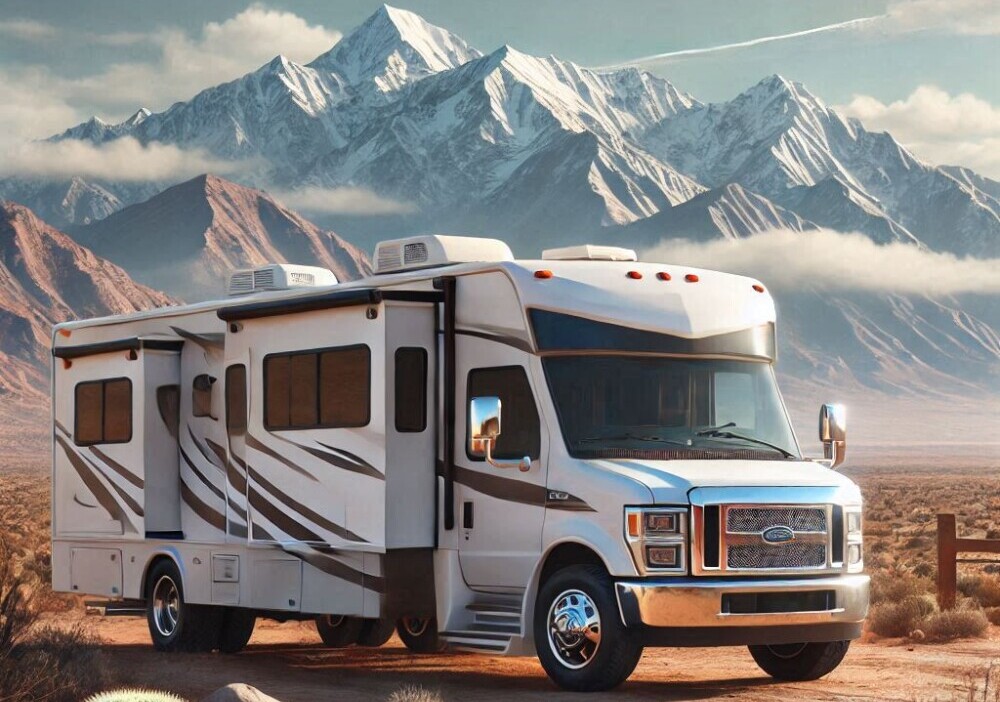Living the RV Lifestyle: Costs, Tips, and Survival Strategies
Living the RV lifestyle often comes wrapped in myths and romanticized ideas. It’s easy to imagine a life of endless sunsets and open roads, but understanding the core of RV living requires peeling back those layers. For starters, this lifestyle isn’t about relentless traveling or constant adventure. Many fall into a quiet rhythm, finding joy in small communities or in extended stays at picturesque spots.
The real question lingering for those considering this life is about the dollars and cents—mainly, is it financially smart? Well, it can be, if you play your cards right. With RV living, there’s flexibility. You can control how much you spend on a site, fuel, or even what part of the country you want to set up camp in. Some months could be frugal; others might hit the wallet harder with repairs or special events.
Comparing RV Living to Traditional Home Life
Cost-wise, you might find yourself pleasantly surprised. Depending on your choices, living in an RV could indeed be cheaper than owning or renting a home. You dodge property taxes and cut down utility bills significantly. But there’s a trade-off. Space is drastically reduced, so it’s all about getting comfortable with less.
The freedom an RV offers is incredible, but it’s not always smooth sailing. It’s not just the open road; it’s about the journey, the places you park, the community you interact with. There are good days, and yes, some rainy ones too. But if the sound of raindrops on the RV roof is your kind of lullaby, this might just be your thing.
Long-Term vs. Short-Term RV Living
Each has its charm and challenge. Short-term is about exploring and testing the waters. Long-term means digging deeper into what makes this lifestyle truly tick. You build a mobile home, a rolling sanctuary that can adapt as you grow. It’s not just about accepting the road’s unpredictability but learning to thrive on it, letting your adventures shape your home on wheels.
Financial Breakdown: The Real Costs of Full-Time RV Living
Kicking off an RV lifestyle involves getting a handle on both the upfront and ongoing expenses. Buying an RV isn’t just about the initial price tag. There are also costs like insurance, registration, and regular maintenance. Think of it as a mini-home; the fridge might break or plumbing might need fixing, and each hiccup has its own cost.
When you compare RV living to traditional housing, the numbers might tip in favor or against, depending on your style. An RV might save you on property taxes and utilities, but unexpected repairs can sneak up too. It’s about weighing these against rent or a mortgage, plus all those little extras a home demands.
Living in an RV can be a money-saver, often allowing a simpler, less expensive way of life. But it’s like any budget: it’s about knowing your non-negotiables. You could spend generously on gourmet food while cutting back on luxury campsite fees or fancy attractions. Balance is key.
Cost-Effective Living: Tips for Thriving on a Budget

Living on the road doesn’t mean emptying your wallet. There are plenty of tricks to keep costs low while fully enjoying the RV lifestyle. One of the smartest moves is getting friendly with solar power. Not only do you cut down on electricity costs, but you also gain the freedom to park in spots beyond the reach of power lines, soaking up nature and sunshine equally.
DIY maintenance is another area where you can pocket some savings. With a bit of resourcefulness and access to online tutorials, you can handle common repairs yourself. Things like patching up a leaky roof, installing new tiles, or even fixing quirky plumbing problems can be within your grasp—no RV tech fees required.
Making an RV feel like home while keeping things budget-friendly means getting creative with your space. Organizing cleverly and investing in multi-purpose items can make a small space feel bigger and more functional without breaking the bank on unnecessary stuff. Get a good handle on RV essentials vs wants.
Earning money on the go opens up new ways to bolster your budget. Whether it’s remote work, seasonal gigs, or selling crafts online, the digital world offers a slew of options to keep the cash flowing as you explore new frontiers.
Adopting a minimalist mindset can also ease the financial weight. By focusing on experiences rather than materials, you can cut down on nonsensical spending. It’s more about the journey, the landscape, and the community than the clutter you carry along.
Finding Free or Cheap Campsites
Setting up your RV doesn’t always mean sinking dollars into a campsite. A smart start is looking into Bureau of Land Management (BLM) lands, which offer free or very low-cost options. These public lands open up endless possibilities for gorgeous, natural settings, often without a neighbor in sight.
Technology becomes your ally when finding these budget-friendly spots. Apps like iOverlander and websites like FreeCampsites.net can point you toward the perfect spot, whether it’s deep in the forest or under a starlit desert sky. These platforms are goldmines for tips and reviews from fellow travelers who’ve parked there before.
The art of “boondocking”—or dry camping—can save cash while enhancing your sense of adventure. It’s camping without connections for power or water, demanding a bit more self-sufficiency, but it’s a great way to enjoy solitude and pristine nature.

RV clubs and associations offer discounts in private campgrounds, so staying connected with these networks can stretch your money further. Many clubs also provide resources that extend beyond just cost-saving, like meet-ups and tips from seasoned road warriors.
Mixing and matching between free, discounted, and traditional campgrounds keeps things fresh and adaptable. While a free site might suit when you want peace and quiet, a more established campground can offer essential services now and then, allowing you to recharge both your batteries and your amenities.
Preparing for Challenges: Safety and Comfort on the Road
- Weather can sometimes throw curveballs when you’re living in an RV, so it’s good to have a plan in place. Keep tabs on the weather forecast and be flexible with your travel routes to avoid severe conditions. Love the warmth of summer? Head north during the heatwaves. Want a mild winter? The southern states might just be your winter wonderland.
- Keeping health and well-being in check while on the move is vital. This means maintaining a healthy diet and exercise routine, even if it’s just regular walks around your ever-changing neighborhood. Access to healthcare sometimes requires a bit of planning, so look into clinics and services ahead of time in more remote areas.
- Safety on the road can be an issue if you’re unprepared, but a little foresight goes a long way. Equip your RV with basic security measures like a reliable lock, an alarm system, and safety lights. In case of an emergency, having a solid first aid kit and knowing a bit of first aid can make a big difference when far from help.
- Creating a homey atmosphere in the compact space of an RV brings comfort to this adventurous lifestyle. Personal touches like photos, cozy blankets, and your favorite music can transform the space, making it as much of a home as any traditional house. Adaptability is key, as you’ll need to reorganize often depending on where you’re parked or what you’re currently using.
Resourcefulness becomes your best friend when you’re faced with unexpected road challenges. Whether handling an unexpected breakdown or finding your way around a closed route, a mix of patience and creativity helps you overcome and enjoy the process.
About the Author
Jim has 3.5 years of experience living and traveling full-time in an RV. From “moochdocking” with family and friends to navigating the financial intricacies of RV life, he shares practical advice rooted in firsthand experience. His goal is to help fellow adventurers embrace the RV lifestyle with confidence and ease.

This article really paints a clear picture of RV living—it’s not just about the open road but also the reality of managing costs and adapting to a smaller, mobile space. I’m curious though—how do the upfront costs of buying an RV stack up against the savings on rent and utilities in the long run? And when unexpected repairs pop up, how do you stay ahead of them without blowing your budget? Lastly, how do you handle healthcare and emergencies when you’re on the move all the time? It seems like a constant balancing act!
Zachary, Thank you so much for your thoughtful comment! I’m glad you found the article insightful.
Upfront Costs vs. Long-Term Savings
You’re right, the initial investment in an RV can be significant. However, over time, the savings on rent and utilities can balance this out. When you own an RV, you’re not tied to a lease or mortgage, and many RV parks offer affordable long-term stay rates, which can be much lower than traditional housing costs. Plus, you have the flexibility to boondock (camping without hookups) in many places for free, which further cuts down on expenses.
Managing Unexpected Repairs
Repairs are part and parcel of RV living, and they can indeed be a budget buster if you’re not prepared. One strategy is to set aside a maintenance fund specifically for unexpected repairs—think of it like a savings account just for your RV. Regular maintenance checks can also help catch small issues before they become big, costly problems. DIY repairs can also be a great way to save money. Investing some time into learning basic RV tech skills, or even attending RV tech training, can pay off in the long run. Not only does it help you handle common issues yourself, but it might even turn into a side gig!
Healthcare and Emergencies
Healthcare on the road requires a bit of planning. Personally, I still have a full-time job that provides health insurance, which is a big help. Many full-time RVers use telehealth services for minor issues and routine checkups. For more serious health needs, it’s crucial to have a reliable health insurance plan that covers a wide network of providers. Some RVers also keep a list of healthcare facilities along their planned routes, just in case. For emergencies, having a well-stocked first aid kit and an emergency plan in place (knowing the nearest hospital, for example) can provide peace of mind.
Living the RV life is definitely a balancing act, but with some planning and flexibility, it’s possible to live comfortably and economically on the road. Happy travels!
Hi!
The RV lifestyle sounds like it could offer an exciting and budget-friendly way to live, but it seems like there are many factors to consider before making the leap. Have you ever thought about trying it, or do you think it’s more practical for certain types of people? What do you think would be the hardest part about adjusting to life on the road?
Kind rgds,
Jose
Hi Jose,
Thank you for your thoughtful comment! I’ve actually been living and traveling full-time in an RV for over three years, and it’s been an incredible experience. The lifestyle can certainly be budget-friendly, but it does require some planning and adjustments.
I think it’s practical for people who are flexible, enjoy a minimalist lifestyle, and don’t mind being on the move. The hardest part for many is downsizing and adapting to the limited space, but once you get used to it, the freedom and unique experiences make it all worthwhile.
Kind regards,
Jim